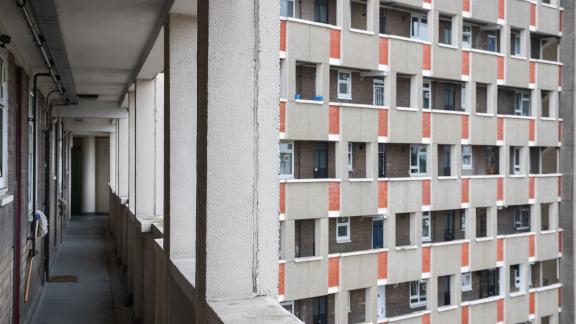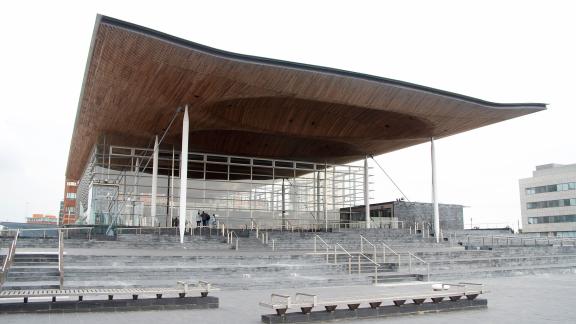60 per cent of people in Wales say their health has worsened due to rising cost of living

50 organisations across health, housing and social care, including royal colleges and patient advocacy groups, have come together to launch Mind the gap: what’s stopping change?
A new paper from the Welsh NHS Confederation Health and Wellbeing Alliance, in partnership with the Royal College of Physicians (RCP), calls on the Welsh Government to produce a cross-government plan to reduce poverty and tackle inequalities.
The Alliance is also calling on Welsh Government to make a real difference to people’s lives by providing more hands-on support and detailed guidance for smaller, local organisations on how to tackle inequalities, and simplifying a complex and ever-changing landscape with hundreds of targets and performance measures.
This report comes as research finds that 60 per cent of people in Wales feel their health has been negatively affected by the rising cost of living, according to a YouGov poll commissioned by the RCP. 90 per cent said it was due to increased heating costs, over three quarters (76 per cent) said it was a result of the rising cost of food and almost half (45 per cent) said it was down to increased transport costs. 72 per cent said that other fixed bills (council tax, water etc) were also having a negative impact on their mental or physical health.
Health inequalities – unfair and avoidable differences in health and access to healthcare across the population, and between different groups within society – have long been an issue, but the COVID-19 pandemic and the rising cost of living has exacerbated them.
Respiratory conditions such as asthma and COPD are often made worse by air pollution or exposure to mould in poor quality housing. Recently, a debt counselling charity warned that the proportion of people in arrears with their energy bills in Wales is worse than any other part of the UK, which is pushing people into mental health crisis.
That is why the Welsh NHS Confederation Health and Wellbeing Alliance is calling for cross-government action to reduce inequalities and tackle poor housing, food quality, community safety, low incomes, fuel poverty, racism and discrimination, poor transport links and air pollution, many of which are outside the remit of health and social care services.
Inequalities at a glance
- Health inequalities cost the Welsh NHS £322 million every year (Public Health Wales).
- Wales now has the worst child poverty rate of all the UK nations at 31% (End Child Poverty).
- One in ten Welsh households live in insecure housing (Bevan Foundation).
- People in Wales face a higher risk of dying in poverty than any other UK nation (Marie Curie)
- Almost 60% of adults in Wales are living with overweight or obesity (Public Health Wales).
- The full social cost of obesity to Wales is around £3 billion a year (Frontier Economics).
- 12% of Welsh households are at least one month behind on a bill (Bevan Foundation).
- Child poverty has increased in 20 of 22 local authorities over the past 5 years (End Child Poverty).
- Half of all children in lone-parent families in the UK are now living in relative poverty (IFS).
Nesta Lloyd-Jones, assistant director of the Welsh NHS Confederation and chair of the Health and Wellbeing Alliance, said:
“The COVID-19 pandemic has exposed the extent of the country’s inequalities - we know those living in more deprived areas have been disproportionately affected by the impacts of the pandemic. Data shows the stark difference in life expectancy between different parts of Wales and health leaders are deeply worried about the impact the rising cost of living is having, and will continue to have, on patients in their local communities.
“Tackling inequalities needs concerted and holistic action across Welsh Government departments and all sectors. There is clear evidence of the impact that poor quality housing, air pollution, food poverty and access to transport, sport and the arts has on people’s health. It is now vital that the government details how it will address the health divide and tackle the issue head on.”
Dr Olwen Williams, vice president for Wales, Royal College of Physicians said:
“We know that poverty causes illness and poor health. In fact, everything affects health. The cost of living crisis is likely to have a significant impact on the NHS and social care in the coming months as more people become ill and join growing waiting lists for healthcare.
“People in poverty die younger. Inequalities in life expectancy in Wales are getting wider, partly due to the pandemic, which has highlighted how economic conditions can cut lives short. People should be able to afford healthy food and warm homes without worrying so much that it negatively impacts their mental and physical health.
“Concerted cross-government action to reduce health inequalities would help keep people contributing to the economy, their local communities, and wider society and reduce avoidable illness, and in the long-run, avoidable pressure on the NHS.”
Clarissa Corbisiero, deputy chief executive, Community Housing Cymru said:
"Society's responsibility for health and wellbeing goes beyond simply healthcare. All public services have a part to play – not just the NHS. This report reinforces the fact that not everyone in Wales has access to the things they need to stay healthy and well – such as adequate housing, fair employment, quality food, access to green space and more.
"Housing associations in Wales are supporting the shift to prevention across the multiple issues and areas affecting these inequalities, including poverty, homelessness and social care. By working together, and with a cohesive plan, we can close the health inequality gap for good."
Contact
Lowri Jackson
RCP head of policy and campaigns for Wales
Welsh NHS Confederation Health and Wellbeing Alliance
The Welsh NHS Confederation Health and Wellbeing Alliance consists of over 70 health and care organisations from Royal Colleges, third sector organisations and social care organisations, and was established in 2015 to discuss key priorities and policy areas. The sub-group on health inequalities is chaired by the Royal College of Physicians and Community Housing Cymru.
About us
We are the membership organisation that brings together, supports and speaks for the whole healthcare system in England, Wales and Northern Ireland. The members we represent employ 1.5 million staff, care for more than 1 million patients a day and control £150 billion of public expenditure. We promote collaboration and partnership working as the key to improving population health, delivering high-quality care and reducing health inequalities.

